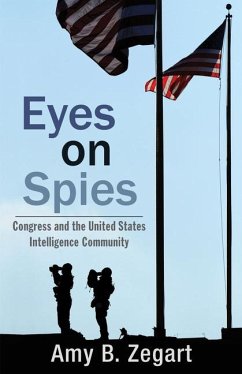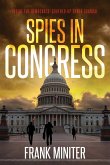The September 11 terrorist attacks sparked major efforts to transform executive branch intelligence agencies. Although Congress has been instrumental in many of these post-9/11 executive branch reforms, it has been largely unable to reform itself. In 2004, the 9/11 Commission called congressional oversight "dysfunctional" and warned that fixing oversight weaknesses would be both essential to American national security and exceedingly difficult to achieve. Why have these deficiencies persisted for so long, despite the clarion call for change after 9/11 and the unprecedented importance of intelligence in today's environment? In Eyes on Spies, Amy Zegart argues that many of Congress's biggest oversight problems lie with Congress itself. Although acknowledging that intelligence policy making has undoubtedly become more partisan and rancorous in recent years, and that individual personalities matter, she shows that the root causes of dysfunctional intelligence oversight cross party lines, presidential administrations, individual congressional leaders, and eras. The author first attempts to define what good oversight looks like--and concludes that, however one defines good oversight, Congress has not been doing it in intelligence for a very long time. She examines existing research in both political science and intelligence studies and finds that both literatures have insights and limitations when it comes to understanding enduring intelligence oversight weaknesses. Taken together, however, both literatures provide essential elements for understanding why intelligence oversight has remained so problematic for so long. Zegart also compares oversight activities of intelligence to other policy areas and reveals that intelligence oversight is always an uphill battle because the issue is always a political loser. In looking specifically at what's wrong, she finds two crucial institutional deficiencies: limited expertise and weak, fragmented budgetary authority. The author concludes by suggesting policy implications for the future of intelligence oversight-and the picture is not encouraging. The sources of oversight dysfunction, she explains, lie with electoral incentives and institutional prerogatives, and these are not about to disappear. As long as all members of Congress protect congressional committee prerogatives and engage in every-man-for-himself calculations of political self-interest, the current inadequacies in intelligence oversight are unlikely to improve.
Hinweis: Dieser Artikel kann nur an eine deutsche Lieferadresse ausgeliefert werden.
Hinweis: Dieser Artikel kann nur an eine deutsche Lieferadresse ausgeliefert werden.








